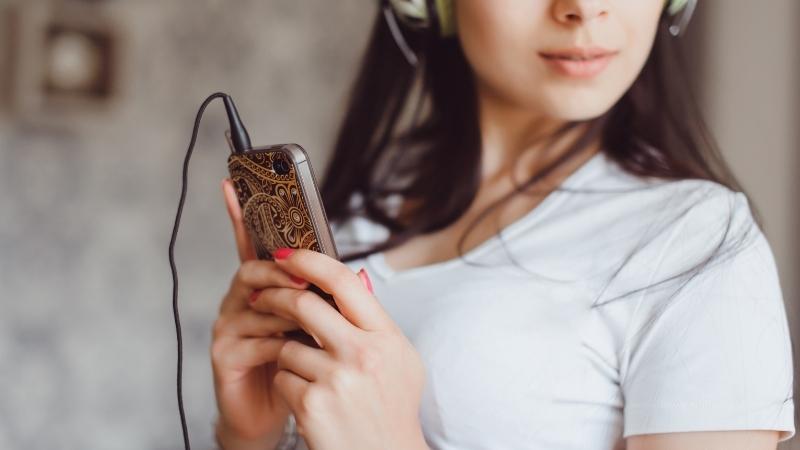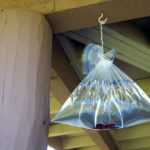If you’re feeling sluggish in the morning and struggling to stay awake during work or study sessions, your productivity will likely take a hit. This is often caused by staying up late and not getting enough sleep. Additionally, a lack of essential nutrients or life’s stressors can leave you feeling tense and tired. Aside from drinking tea or coffee, try these simple tips to boost your energy levels, improve your mood, and banish sleepiness so you can start your day full of vigor!
1. Use essential oils to stay awake
 Use essential oils to stay awake
Use essential oils to stay awake
Did you know that the scent of essential oils can stimulate your brain? When you feel drowsy, try rubbing some on your temples or forehead for an instant pick-me-up.
For more information: A Comprehensive Guide to Essential Oils
2. Relax your body
 Relax your body
Relax your body
Instead of sitting still, remember to move your arms and legs, and relax your body during breaks from work or study. Try simple exercises like neck rolls, wrist and ankle circles, and stretching your arms and legs. This will not only reduce sleepiness but also help relieve tension in your brain.
3. Massage specific acupressure points
 Massage specific acupressure points
Massage specific acupressure points
You might think that finding the right acupressure points is difficult, but it’s not! One such point is called Feng Chi, and it can help reduce sleepiness and alleviate headaches and dizziness. To locate it, first, cup your ears with your palms, with your fingers pointing towards the back of your head. Then, slide your thumbs down until you feel a slight indentation—that’s the Feng Chi point. Massage this area gently but firmly in a circular motion for 2–3 minutes.
Another point is called Bai Hui, located at the crown of your head. Massage this point in the same way as Feng Chi for 2–3 minutes. This will help you feel more relaxed and less sleepy.
4. Aromas of peppermint, lemon, or grapefruit
 Aromas of peppermint, lemon, or grapefruit
Aromas of peppermint, lemon, or grapefruit
The scent of peppermint is known for its refreshing and invigorating properties, helping to clear the air and keep sleepiness at bay. Additionally, eating or smelling citrus fruits like oranges, tangerines, grapefruits, and lemons can reduce fatigue, boost your mood, and provide an energy boost to get you through the day.
5. Eat a nutritious breakfast
 Eat a nutritious breakfast
Eat a nutritious breakfast
Start your day with a nutritious breakfast to fuel your body and keep sleepiness at bay. Make sure to eat at the right time and avoid skipping meals or grabbing just a cookie or coffee.
6. Take a cold shower
A quick way to boost your energy and alertness is to take a cold shower. This stimulates your body and brain by increasing your heart rate and promoting oxygen circulation. When your brain receives ample oxygen, you’ll feel more energized and clear-headed.
The best time to take a cold shower is in the morning. If you must shower in the evening, do so before 8 pm to avoid the risk of a dangerous cardiovascular event.
 Take a cold shower
Take a cold shower
7. Eat smaller portions
Your body needs energy to function, and eating protein-rich foods like eggs and yogurt can help. However, it’s important to watch your portion sizes. When you’re sleep-deprived, your brain’s reaction time slows down, causing you to overlook fullness cues and overeat. Additionally, overeating can make you feel sleepy!
 Eat smaller portions
Eat smaller portions
8. Cut down on sugar
Craving sweets is a common symptom of sleep deprivation. Over time, lack of sleep can even lead to weight gain. If you’re craving something sweet, opt for fruit instead of a sugary treat. The natural sugar in fruit takes longer to digest, so you won’t feel hungry and sleepy again as quickly.
 Cut down on sugar
Cut down on sugar
9. Stay hydrated
Drinking plenty of water is another way to combat sleepiness. Dehydration can also lead to fatigue and sleepiness, so make sure to drink more water than usual. The increased fluid intake will stimulate your excretory system, leading to more frequent bathroom breaks, which can help reduce sleepiness and restore alertness.
 Stay hydrated
Stay hydrated
10. Soak up some sun
Sunlight stimulates the circulatory system and enhances concentration and emotional regulation. It also boosts your mood, energy levels, and alertness, helping you shake off sleepiness.
 Soak up some sun
Soak up some sun
11. Exercise or play sports
Develop a daily habit of walking and exercising to increase your energy levels, adrenaline production, and metabolism. Whether it’s a light or intense workout, physical activity is an effective way to boost your energy and stay alert.
 Exercise or play sports
Exercise or play sports
12. Chew gum
Although the effect is temporary, chewing gum—especially peppermint-flavored gum—can help reduce daytime sleepiness and increase alertness.
 Chew gum
Chew gum
13. Take a short walk
According to Dr. Robert Sayer, a professor at California State University in the US, a 10-minute walk can help you stay awake for about 2 hours by increasing oxygen flow to your veins, brain, and muscles.
If you’re feeling sleepy at work, simply get up and move around. You can take a short walk to grab lunch, a snack, or a drink.
 Take a short walk
Take a short walk
14. Strike up a conversation
If you’re feeling sleepy, find someone to chat with. Talk about work ideas or fun topics. Humor is an excellent way to ward off sleepiness and manage stress.
 Strike up a conversation
Strike up a conversation
15. Use bright lights
A dim environment can make you feel more tired. Research has shown that exposure to bright light reduces sleepiness and increases excitement. If you’re struggling to stay awake, try turning on more lights or opening a window to let in natural light. You’ll be surprised at how effective this simple trick can be!
 Use bright lights
Use bright lights
16. Take a power nap
Not all companies provide nap rooms for their employees, so this may not be an option during work hours. If your company encourages power naps, set an alarm to ensure you don’t oversleep.
According to Dr. Allison T. Siebern of the Stanford University Sleep Medicine Center, if you can’t nap, simply close your eyes and rest for 10 minutes.
 Take a power nap
Take a power nap
17. Learn something new
If you’re struggling to stay awake, try learning something new. Novel ideas will stimulate your brain and help you focus better. To make tedious tasks more interesting, try decorating your workspace, brainstorming new ideas, and taking creative notes.
 Learn something new
Learn something new
18. Listen to your favorite music
Music can effectively lift your mood and increase your alertness. Listening to your favorite songs strengthens the connection between the auditory and memory regions of your brain. It also enhances creativity, productivity, and helps you forget about your sleepiness.
 Listen to your favorite music
Listen to your favorite music
19. Rest your eyes
This is a quick and easy way to fight sleepiness that you can do right at your desk. Staring at a computer screen for extended periods can cause eye strain and sleepiness. To give your eyes a break:
- Look away from the screen and focus on distant objects.
- Practice eye exercises to improve your vision.
- Use eye drops to relieve eye fatigue.
 Rest your eyes
Rest your eyes
For more information:
While these tips can help reduce sleepiness and improve your mood, the best way to ensure you feel energized throughout the day is to get a full night’s sleep of 7–8 hours.





































